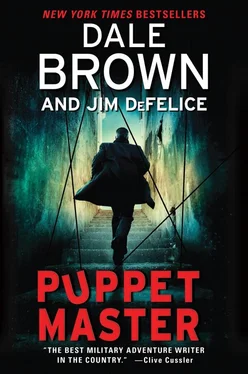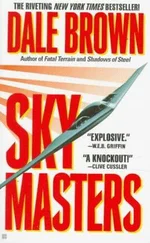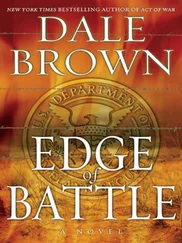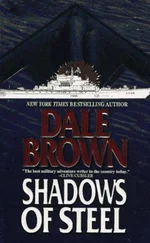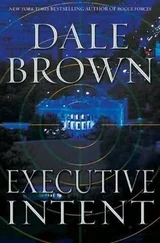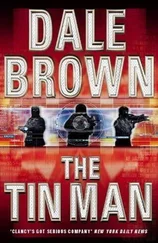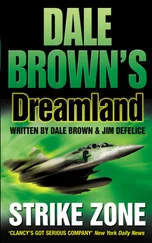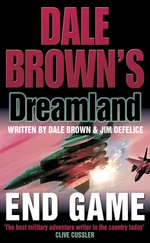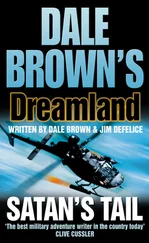He was cute.
And incredibly strong. Mentally. It was impossible that he was out walking around. His face was still covered with scabs, his arms red with flash burns — and yet there he was, walking on artificial limbs Massina had invented.
Other people, too, but Massina mostly. The prosthetics were an obsession.
Chelsea rose from her workstation. Borya did remind her of herself, or a self she could have been under different circumstances.
How am I going to save her?
* * *
Massina headed home to change, then drove to the Antiquarian Club, where he had promised to put in an appearance at a fund-raiser. He didn’t particularly like playing VIP, but it was a favor to a member of his board of directors.
It meant putting on a tie as well as a suit. He fiddled with it in his bathroom, trying to get the knot centered perfectly. It wasn’t easy, and he was too distracted, thinking about a million things: ramping up production on a new bot line, repurposing an older generation of chips for handheld devices, the possibility of revamping ATM networks, Chelsea’s dalliance — or not — with the FBI agent.
And that little girl hacker.
Give the girl a job? Throw her in jail first. What’s wrong with parents today?
Thirty minutes later, tie still slightly askew, Massina walked into the lounge at the Antiquarian Club. The club’s name was not meant ironically — it was devoted to preserving the past, raising funds for the city’s museums and historical sites. He shook hands with the VIP host, then nodded his way to the bar, where he had just obtained a four-finger bourbon when a familiar voice scolded him.
“Now Louis, remember you have to give a speech,” said Sister Rose.
“Sister Rose Marie. Night off?”
“They cut the ball and chain for special events,” said the nun.
“I don’t have to say more than five words. That’s in my contract. What are you drinking?”
“Seltzer, please.”
“Not white wine?”
“Too early. I might tell some of the politicians what I think of them, and things would be awkward for the rest of the evening.”
“Sister, I don’t think you’ve ever offended anyone in your life. Even your insults are a blessing.”
“Don’t butter the bun on both sides, Louis. It’s likely to fall.”
Massina got her the drink.
“Your young man made remarkable progress,” she told him, sipping the seltzer daintily. “The drug regime is very, very good. And, of course, God was with him.”
“He came by and asked me for a job today.”
“Really?”
“I told him he has months to go. But he has the right attitude.”
“You can’t let him go back to work yet. He needs time.”
“I don’t intend to. Down the road, maybe.”
“Make it a long road, Louis. This is very fast.”
“If you’re thinking of poaching him, Sister, you’re welcome to take first shot. Half the people on my payroll work for you as it is. Or they think they do.”
“I’m worried about the effects as the drugs taper off.”
The mayor’s wife greeted Sister Rose, interrupting the conversation. Massina excused himself; spotting his board member, he went over and said hello. He soon found himself talking to a Harvard history professor who was an expert on the Revolutionary War and was working with an archaeologist planning to excavate a site near the harbor. The site was not that far from his laboratories.
Dinner passed quickly. Massina gave his very brief speech commending the organization with a slogan his PR director had suggested— The future needs the past to get ahead —and made his getaway as the session broke up.
Out front, he gave his car’s ticket to the valet and waited for the vehicle to arrive. Different projects flicked through his mind, problems, solutions.
Will Peter be ready to demonstrate?
How much of a test should it be given?
His car pulled up. He reached for his wallet to get a tip for the attendant.
At that same moment, someone behind him shoved a cloth bag over his head. Before he could react, something slammed into the back of his head. A curse died on his lips as he fell, unconscious.
Near Donetsk — about two hours later
Tolevi’s wife watched him run through the deserted streets. Somehow she kept up with him, even though she wasn’t moving. Dark clouds passed overhead. He looked up and saw they were airplanes, jet bombers. As he stared, they fell to earth, landing on legs that sprouted from their wings.
Robots.
He was surrounded. Their black metal smelled like coal dust and iron, pulverized grit.
He began to choke. He glanced up and his wife was looking at him, concerned.
“How are you here?” he asked her.
“You are dreaming,” she said. “You fell asleep.”
* * *
Tolevi woke with a hard shudder, disoriented. It took a moment to remember where he was: on the bench in the house near Donetsk.
People were moving around upstairs and inside. He seemed to have been forgotten.
Maybe I should just leave.
He got up, a little unsteady.
“So you’re back with us?” asked a bearded man at the end of the hallway.
Tolevi wasn’t sure he was speaking to him. “Me?”
“Come in here.”
Tolevi got up and walked down the hall, flexing the stiff muscles in his legs. He rubbed his shoulders; the house felt cold.
The bearded man sat behind a desk. The room looked like a den. There were stuffed animals on the shelves, and large animal heads on the wall: a lynx, an elk, a moose. The rug was striped; it took a moment for Tolevi to realize it was a leopard’s skin. Various small birds lined the shelves, the taxidermist having posed them in perfect gestures suggesting flight.
“Gabor Tolevi,” said the man. “Tell me why you shouldn’t be executed as a spy.”
“A spy?”
“And a smuggler.”
“I’m just a businessman.”
“Moscow likes you,” said the man behind the desk. He was speaking Russian, though his accent indicated he might be Ukrainian. More likely he was a Russian native but had spent considerable time in the republic before the war. “Yes, Moscow likes you, but I’m not sure.”
The man leaned back in his chair and folded his arms, revealing a tattoo on his right biceps. Most of it was obscured, but the bottom looked like a set of crossed swords at the base of a skull. “Your papers give you the right to import medicine,” he told Tolevi.
“Yes. It’s much needed.”
The man opened his desk drawer and took out a lighter. Picking up the papers on the desktop before him, he flicked, igniting the flame.
Tolevi debated whether to say anything. It didn’t seem worthwhile — what could he say to make the man stop?
Your people in Moscow asked me to do this ?
That clearly had no weight.
The paper flared. The bearded man held on to it as the flames engulfed his hand, then he dropped the black curl to the desk.
“You’ll go back to America,” said the man. “You’re not needed here. I don’t care what Moscow says. We have plenty of black marketeers. All of them more honest than you and your masters in Moscow.”
“OK.”
The man laughed. “No argument?”
Tolevi shrugged. “What can I say?”
“Why did you go into that end of town?”
“I was looking for a place to store the goods.”
“Why would you need a storehouse?”
“If things went well, I wouldn’t. But in this sort of business — anything can happen.”
“Yes. You might lose your papers. You might go home empty-handed. And be lucky to get there.”
“I agree.”
Читать дальше
